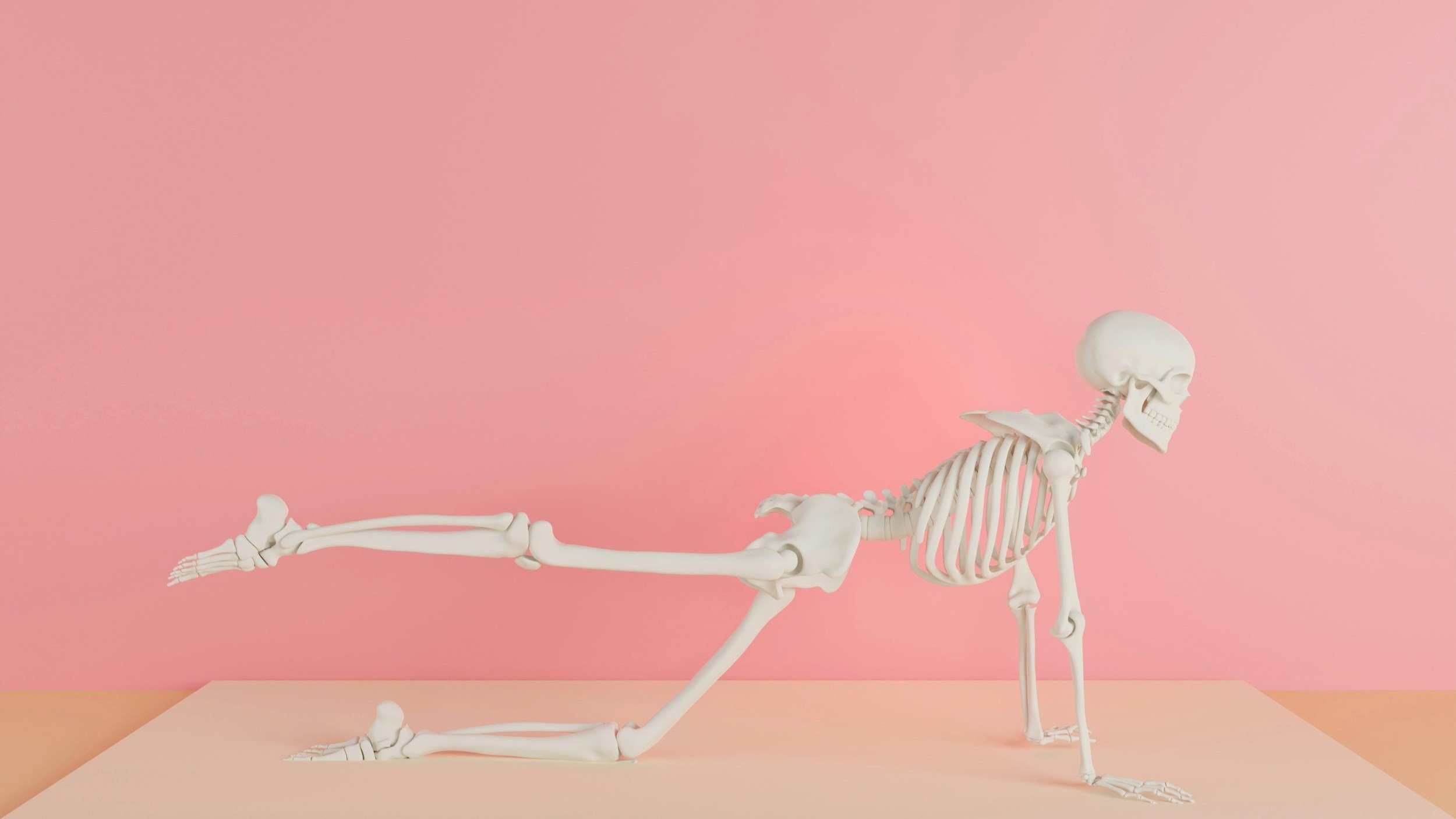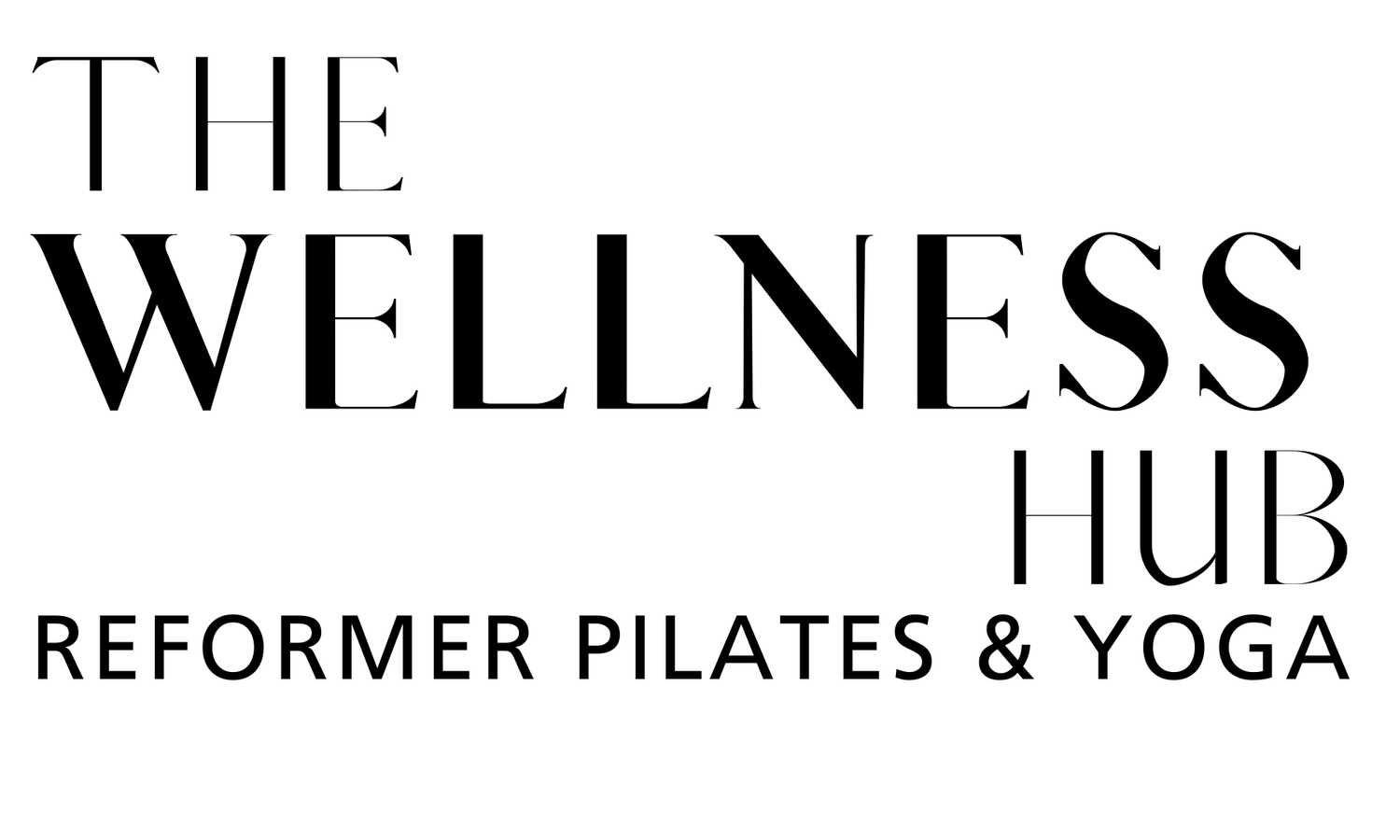
Let's talk about bone health (Yes it's more than just lifting weights)
You might have seen the recent wave on social media telling women to lift really heavy weights for bone health, especially pre/post-menopause. It’s everywhere. But something about it wasn’t quite sitting right with us – this couldn’t be the only way as there are so many healthy strong women out there not lifting heavy weights.
So, we decided to go deeper.
We’ve been reading up via Menopause Australia and the Bone Health Foundation Australia, and also attended a fantastic “Healthy Bones” talk hosted by a local naturopath Emma Sutherland and physios from Balmain Sports Medicine. Turns out, there’s a lot more to bone health than just pumping iron.
We were going to run a Healthy Bones chat here at our studio, however schedules don't align at the moment - so sharing the info here for you.
Here are a few key facts that really stood out:
🦴 Over 1 million Aussies have osteoporosis—most don’t even know it.
🦴Women 50+ are 4 times more likely to develop it.
🦴In the first 10 years after menopause, you can lose up to 2% of bone mass per year.
🦴By age 70, you may have lost up to 30% of your bone mass.
🦴Risk factors include menopause, low calcium or vitamin D, low weight, inactivity, gut issues, and more.
But here’s the good news: Bone is living tissue. That means it can rebuild—with the right inputs. We need both movement and nutrients to support that process.
What’s the Deal with Bone Scans?
When it comes to checking your bone health, most people are familiar with the DEXA scan—it’s the standard test used to measure bone density. But at the talk we attended, we learned about a newer technology called a REMS scan (Radiofrequency Echographic Multi Spectrometry). This one measures not just how much bone you have, but also the quality of that bone—something the DEXA scan doesn’t do.
Here’s a quick comparison:
DEXA Scan
Measures bone density
Uses low-level radiation
Still considered the “gold standard”
Can sometimes miss early-stage bone loss or give inaccurate readings, especially at the hips and spine
REMS Scan
Measures both density and quality
Radiation-free
Portable and highly detailed
Provides a Fragility Score, which may be a better predictor of fracture risk than density alone
After hearing from the experts, our takeaway was this: we need to know more than just how much bone we’ve got—we need to know how strong it is.
The great news is that REMS scans are available locally at Balmain Sports Medicine. We genuinely encourage you to book a scan—not out of fear, but to empower yourself with real knowledge. Whether your results are great or you’ve got room to improve, you’ll be better equipped to take action.
It’s NOT Just About Calcium
You need a combo of:
Hydroxyapatite -highly absorbable calcium/phosphorus (not calcium alone)
Vitamin D3
Hydrolysed collagen
Vitamin K2
Boron
Silica
Emma (our speaker/naturopath) emphasized that quality matters when it comes to supplements. If you’re not sure what to take, ask your naturopath.
👉 If you’re after collagen, we stock Chief Collagen Bars in-studio. They're made with grass-fed hydrolysed collagen, just as Emma recommends. And we will stock their Collagen Protein powder for you soon too.
What About Our Pilates Classes?
This was our main question at the event: “Are our Pilates classes enough for supporting bone health?”
The answer? YES—absolutely!
But here’s the catch: only if you’re not just coasting through it.
If you're knocking out 20+ reps on the lightest springs with ease... it's time to challenge yourself a bit more.
When we give spring options, don’t always choose the easiest one. You want to feel a challenge, you want to feel your muscles being challenged.
Aim to push yourself 2–3 times a week—not every session needs to be max effort, especially if you're coming daily.
And of course, traditional weight training is also great, but it’s not the only way.
If you have any questions or want to chat more about your own bone health journey, feel free to reply. We’re always happy to support you however we can.
To strong bones and smart movement,
Jenni & Sophie

